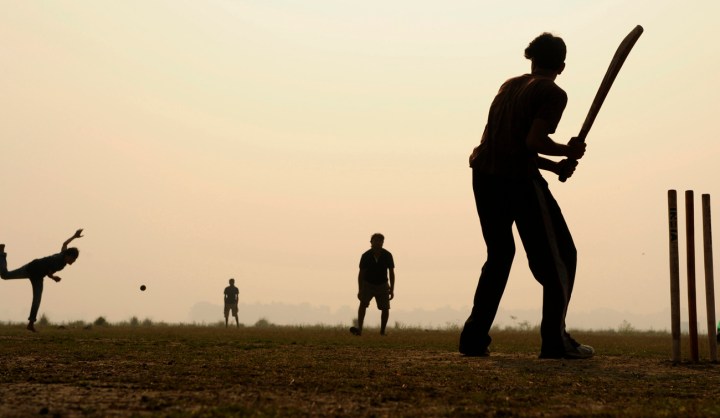Sport
Two-tier Tests: Not the innovation cricket needs

With the Test Championship likely to be dead and buried before it even began, the ICC is now apparently mulling over a two-tier Test division. It’s not the first time this point has been raised, and it’s still not the solution. By ANTOINETTE MULLER.
The idea of a two-tier Test cricket system is nothing new. It was first punted as long back as 2004 and its merits have been discussed a number of times since then. It is in the spotlight once again, with the ICC reportedly considering a promotion-relegation system, now that the Test Championship looks to never see the light of day.
On surface, it sounds like a good idea. Although the exact workings of such a system have never been revealed, it is most likely that it would allow countries like Ireland and Afghanistan to push for promotion to Test status while the lower-ranking teams could be ousted. For the romantic, it sounds like it could be something quite special, but the negative financial impact such a system could have on the lower ranked teams could be great.
It is also unlikely ever to happen. As previously noted by Russell Degnan, the chances of the 13 members of the ICC Executive agreeing to such a vote is highly unlikely, simply because the risk of relegation is far too great for many to take. Similarly, would Australia and England really be willing to sacrifice their five-Test series?
It is well-known that some nations only make money when the big teams tour. New Zealand, West Indies and even South Africa only generate a profit when teams like India, England and Australia tour. If the tiers are split and the “big five” play each other all the time, the financial implications for lower ranking teams could be dire. Where would the money come from to fund the lower tiers?
Because of the way broadcasting rights are negotiated, i.e. it is up to the boards themselves unless it is an ICC event, smaller nations need the others in order to be financially sound. In many countries, cricket is a relatively small sport and thus, its broadcast value is diminished. While some countries, like South Africa, have made strides in finding ways of upping their broadcasting revenue, others struggle and will struggle even more if they don’t have the bargaining chip of big incoming tours to work with.
Furthermore, nations that are not self-sufficient yet will only have it much, much harder. It will serve teams like Ireland far better if the basics are sorted out. For example, Ireland needs a first-class structure without having its players constantly pinched by England. It also needs to play more cricket instead of being bound to the ECB’s demands which does not allow for them to play any international cricket that clashes with England’s broadcast schedule.
Teams are unlikely to want to tour Afghanistan and while their elevation to Test status would be lovely fairytale, it holds no practical relevance.
The ICC has been desperate for some time now to find a way to “make Test cricket more exciting”. Last year, David Morgan, the ICC president, said it was imperative to find a way to move Tests forward.
“The board of the ICC is determined to ensure that Test match cricket is seen as the pinnacle of our great game,” Morgan told India Today magazine in 2013.
“We need better over-rates, better pitches that give a good balance between bat and ball and we need to consider day-night Test cricket,” he said.
“There is great support for it; the issue is the colour of the ball and the quality of the ball. It would be a pity if Test match cricket – day-night – had to be played with a white ball and therefore coloured clothing. We are looking very closely at ball-manufacturing design that replicates a red ball, maybe an orange ball, a ball that could still allow us to play in white clothing and still at night.”
Imagine the ghastliness of having Test cricket played in coloured clothing because the light demands it. Day-night Tests do have merits in terms of drawing bigger crowds, but if this is coupled with things like coloured clothing, it might be a bitter pill to swallow for traditionalists.
The simple fact of the matter is that Tests do not need to be “made more exciting”. They simply need better governance and to find a way to ensure that some of the income that is generated is pooled so that all members benefit. There is already talk that the financial reward for being the number one ranked Test team will be increased, but that this will only benefit the top.
As noted by Degnan: “The sad fact is, cricket is a cartel but it is too disorganised to organise and market its games in a way that maximises their resources to serve customers and therefore leaves enormous amounts of money on the table because of a deficiency of governance.”
Yes, Test cricket needs some form of innovation. But innovation certainly doesn’t need to come in the form of flashing bails or bright clothing and certainly not in a system which only increases disparity. It needs innovation in its leadership, and until those who have been tasked with being its custodians step up to that challenge, it’s like to continue to stagnate. DM
Photo: A batsman (R) waits for the ball to arrive at his end during a game of cricket on open ground in Kolkata March 13, 2011. REUTERS/Philip Brown





















 Become an Insider
Become an Insider